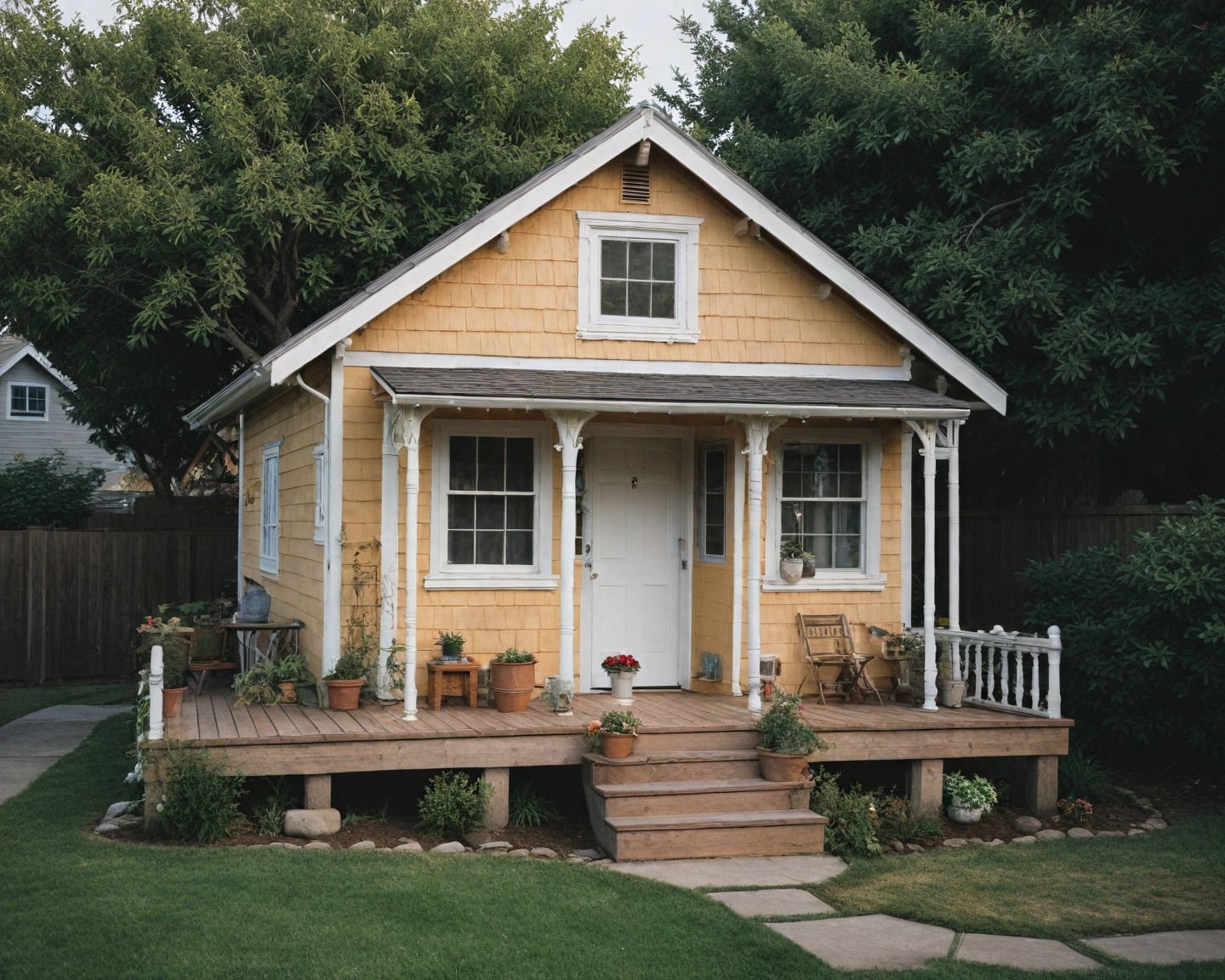Building your own Accessory Dwelling Unit (ADU) is an exciting and rewarding project. With the increasing popularity of ADUs, many homeowners are exploring this option to enhance their property value and generate additional income. But can you really build one yourself? This guide will walk you through everything you need to know, from understanding ADUs to taking the DIY route, complete with practical steps, real-life examples, and expert tips.
What is an ADU?
An Accessory Dwelling Unit (ADU) is a secondary housing unit on a single-family residential lot. It can be a converted garage, basement, or a newly built detached structure. ADUs offer a flexible living solution and can serve various purposes, such as rental units, guest houses, or home offices.
The Rise in Popularity of ADUs
ADUs have gained significant traction among homeowners due to their versatility and benefits. Cities across the country are easing zoning laws to encourage ADU construction as a solution to housing shortages. For many, an ADU is an opportunity to create a personalized space that meets their unique needs.
Benefits of Building an ADU
Increased Property Value
One of the most compelling reasons to build an ADU is the potential increase in property value. Homes with ADUs can command higher resale prices, making this investment worthwhile in the long run.
Additional Income Potential
Renting out an ADU can provide a steady stream of passive income. Whether it’s a long-term tenant or short-term rental through platforms like Airbnb, the financial benefits can be substantial.
Flexible Living Solutions
ADUs offer versatile living options. They can be used as in-law suites, guest houses, or even home offices. This flexibility makes them an attractive choice for homeowners looking to maximize their property’s utility.
Regulatory Landscape
Understanding Local Zoning Laws
Before you start building an ADU, it’s crucial to understand your local zoning laws. These regulations dictate where and how you can construct an ADU on your property. Contact your local planning department for specific guidelines.
Building Codes and Permits
ADUs must comply with building codes and require various permits. This includes electrical, plumbing, and structural permits. Securing these permits can be a complex process, but it’s essential for ensuring your ADU is safe and legal.
Size and Design Restrictions
Local ordinances often impose size and design restrictions on ADUs. For example, in California, ADUs can be up to 850 sq.ft. for a studio or 1-bedroom unit and 1,000 sqft for a 2-bedroom unit. Understanding these limitations will help you plan your project effectively.
Schedule a call with our experts
DIY vs. Professional Build
Cost Considerations
Building an ADU yourself can save on labor costs, but it also comes with potential risks and challenges. Weigh the cost of materials, tools, and potential mistakes against the price of hiring professionals.
Time Commitment
DIY projects require significant time and effort. Consider whether you have the time to dedicate to planning, designing, and building an ADU. Hiring a professional contractor may expedite the process.
Legal Compliance
Professionals are well-versed in building codes and regulations, reducing the risk of legal issues. If you’re DIY-ing, be prepared to invest time in learning about these legal requirements to ensure compliance.
How to Build Your Own ADU

Step 1: Planning and Design
Start by assessing your property and deciding the type of ADU you want to build. Options include converting existing spaces like garages and basements or building new detached units. Use tools like Gatheradu ADU Cost Calculator to estimate your ADU cost.
Step 2: Securing Permits
Secure the necessary permits before breaking ground. This may include building, electrical, plumbing, and zoning permits. Submit detailed plans to your local planning department and be prepared for inspections.
Step 3: Site Preparation
Prepare your site by clearing any obstacles and ensuring proper drainage. Foundation work is critical and may involve laying concrete slabs or constructing crawlspace.
Step 4: Framing and Structural Work
Construct the skeleton of your ADU, including walls, floors, and roof. Use quality materials to ensure durability and safety.
Step 5: Installing Utilities
Install plumbing, electrical, and HVAC systems. These require specialized knowledge and typically need to pass local inspections. Consider hiring professionals for these tasks if you’re not experienced.
Step 6: Insulation and Drywall
Proper insulation is crucial for energy efficiency. Install drywall and finish the interior with paint, flooring, and fixtures.
Step 7: Final Touches
Add final touches like cabinetry, appliances, and landscaping. Ensure everything is up to code and schedule a final inspection.
Conclusion
Building your own ADU is a rewarding project that offers numerous benefits, from increased property value to additional income. While the process can be complex, thorough planning and understanding of local regulations can make it achievable. Whether you choose the DIY route or hire professionals, an ADU can be a valuable addition to your property.
Ready to start your ADU project? Schedule a call with our experts and take the first step toward transforming your property with an ADU.




